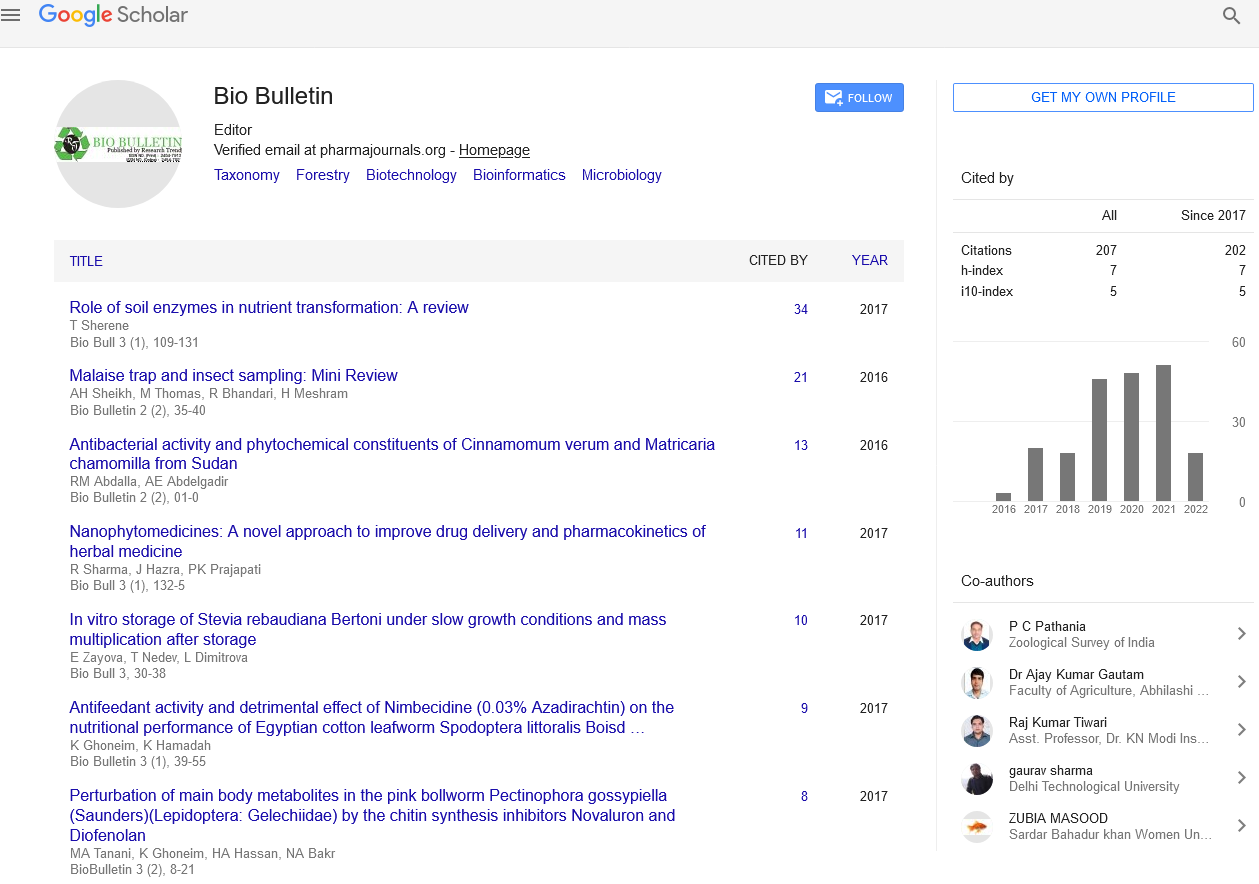Impact of Climate Change on Honey-Bee Populations and Diseases
Abstract
Author(s): Isha Slathia and N. K. Tripathi
Apis mellifera, is the most economically valuable pollinator of agricultural crops worldwide. Bees are also crucial in maintaining biodiversity by pollinating numerous plant species whose fertilisation requires an obligatory pollinator. Apis mellifera is a species that has shown great adaptive potential, as it is found almost everywhere in the world and in highly diverse climates. In a context of climate change, the variability of the honey bee's life-history traits as regards temperature and the environment shows that the species possesses such plasticity and genetic variability that this could give rise to the selection of development cycles suited to new environmental conditions. Although we do not know the precise impact of potential environmental changes on honey bees as a result of climate change, there is a large body of data at our disposal indicating that environmental changes have a direct influence on honey bee development. In this article, the authors examine the potential impact of climate change on honey bee behaviour, physiology and distribution, as well as on the evolution of the honey bee's interaction with diseases. Conservation measures will be needed to prevent the loss of this rich genetic diversity of honey bees and to preserve ecotypes that are so valuable for world biodiversity.
casinoplus vdcasino betriyal betriyal betriyal betriyal betriyal betriyal betriyal betriyal betriyal casinoplus casinoplus casinoplus maltcasino almanbahis melbet betsat fenomenbet betmatik
Share this article

Google Scholar citation report
Citations : 320
Bio Bulletin received 320 citations as per Google Scholar report
